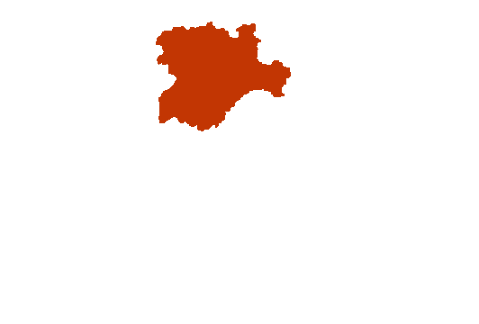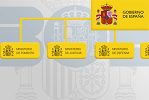Connection to electricity services
Content
Right of the consumer to be connected
Consumers of electricity have the right to obtain access and be connected to electricity transmission and distribution networks in Spain.
This right is specifically established in Law 24/2013 of 26 December 2013 ![]() on the Electricity Sector, and is subject to the fundamental conditions set out in Royal Decree 1047/2013 of 27 December 2013
on the Electricity Sector, and is subject to the fundamental conditions set out in Royal Decree 1047/2013 of 27 December 2013![]() , and in Royal Decree 1048/2013 of 27 October 2013.
, and in Royal Decree 1048/2013 of 27 October 2013.![]()
It is precisely this connection that permits consumers to be supplied. To be able to achieve this, they must contact the network manager in the area where that physical connection is or will be established.
How can a consumer contact the network manager and get in touch with them?
Communication with the distribution company is essential to resolve the issue of enabling a consumer to be connected to the distribution network, or, as the case may be, to the electricity network and all aspects related to it.
Consumers who are not covered by the voluntary price for low-usage consumers (PVPC) can always choose to contact the distributor directly or, if they already have a supply contract with a supplier, they can also ask the supplier to do so on their behalf.
It should be noted that distribution and supply companies are different entities in the electricity sector. In this respect, Law 24/2013 of 26 December![]() on the Electricity Sector, defines them as different subjects in the following way:
on the Electricity Sector, defines them as different subjects in the following way:
- Distributors are commercial companies or cooperatives of consumers and users. Their function is to distribute the power and build, maintain and operate the distribution facilities used to house the power at consumer points and all those functions set out in Article 40.
- Suppliers are commercial companies or cooperatives of consumers and users which, by accessing the transmission or distribution networks, acquire power in order to sell it to consumers, other system agents or to carry out international exchange operations under the terms established in this Law.
Do consumers need to pay to get connected?
In relation to connection, consumers must pay connection charges.
Connection charges will include the following items:
- Charges for extension rights, for the new network extension facilities required that are the responsibility of the distribution company.
- Access charges.
- Supervision charges on transferred facilities, if the consumer decides on the direct execution and subsequent transfer of the facilities.
In addition, depending on the case, the consumer must pay for the following items, if they are necessary to execute the activities set out in the definition of said payments:
- Hook-up costs: the operation of connecting the receiving facility to the network of the distribution company, which is obliged to pay for this operation.
- Checking of the facilities: inspecting and checking that they comply with the regulatory technical and safety conditions.
- Actions carried out on measuring and control equipment: connection and sealing of the equipment, and all other actions performed on the same by the distribution company arising from the consumer’s decisions.
Lastly, and without prejudice to the above, once connected and as part of the electricity supply, the consumer must pay the respective transmission and distribution tolls and charges.
What if a consumer moves to a home that is already connected?
This will depend on whether the new consumer extends, maintains or reduces the contracted power supply.
If the consumer decides to extend an existing supply, they will be charged for this service extension and this includes paying the distribution company for carrying out all the work necessary to extend the supply. In this case, the cost of the service extension will be based on the power increase to the existing service.
If the consumer decides to reduce the supply or maintain the existing conditions, they only need to pay connection charges.
What happens if a new connection is needed?
In this case, the consumer must apply to the distribution company for a new connection.
As in the case of extensions to existing connections, this service also includes paying the distribution company for carrying out all the necessary work to set up a new supply.
Likewise, the consumer must pay for the costs of the connection, and for the testing and work on the metering and control equipment.
The above payments are separate from the fees and charges included in the electricity bill once the supply has started.
How can a consumer change their supply company?
In relation to the supply of electricity, the consumer must choose from among the following options at each supply point:
-
Contracting the power, access to transmission and distribution networks and charges established through the supply company. The transmission and distribution network access contract is signed by the consumer and the distribution company. In this option, the supply company acts as the consumer’s agent.
-
Take out separate contracts for energy supply (with a supplier) and for access to the transmission and distribution networks and charges (with the respective distributor). This option applies to consumers who are not covered by the PVPC.
-
Direct purchase of power in the production market and contracting access to transmission and distribution networks and the regulated charges with the respective distribution company.
WhAll consumers can take out a supply contract with a supply company on the free market. Only consumers who fulfil certain criteria will be able to take out a PVPC supply contract on the regulated market.
When the consumer changes from a regulated rate to the free market rate and no work needs to be carried out on the installations, the change of supply company is subject to the following deadlines:
- If the supply is billed every two months, the consumer may either switch to the liberalised energy market which they must do no later than fifteen days after the request, or when appropriate, depending on the meter reading cycle.
- If the supply is billed every month, the change will be made when appropriate, depending on the meter reading cycle.
- In all cases, electricity consumers are entitled to change their supply company within a period of no more than 21 days.
On the free market, the supply company and the consumer freely agree on the supply conditions. As a general rule, these low voltage supply contracts have a maximum duration of one year, and can be tacitly extended for periods of one year
After the one-year term, the consumer may terminate these contracts without incurring any penalty charges, with 15 days of notice.
In the event of terminating the contract before one year has passed, the supply company may apply a penalty charge of no more than 5% of the price stipulated in the contract for the power that is pending supply.
After the first year of the contract, there is no additional charge for changing from the free market to the regulated market provided the technical conditions of the contract are maintained. Changes in the contracted power or the execution of the necessary activities on the measuring and control equipment or the facilities may incur an extra charge.
Regulated market contracts have a term of one year and are tacitly extended for one-year periods.
Consumers who change from the free market to the regulated market must remain in the free market for at least one year, without being able to sign a new contract for the purchase of energy and network access before said period has passed.
Consumers may change from the regulated market to the free market free of charge and at any time.
Notwithstanding the above, a move from the free market to a PVPC (voluntary price for small consumers) contract shall incur no penalties or additional costs to the consumer, as long as the conditions for being considered vulnerable have been established and provided that the parameters set out in the contract for third-party access to the network are not altered.
Official website or link where consumers can compare the rates of the different supply companies
Through the following link you can access the energy offer comparison tool in the free market (for electricity and for gas) designed by the National Commission on Markets and Competition for low voltage consumers, with and without time restrictions:
Market energy offer comparison tool.![]()
For contracts on the regulated market (PVPC), the contracted power must be equal to or less than 10 kW and the consumer must be a natural person or a microenterprise.
A simulation of the PVPC electricity bill (for consumers with contracted power of 10 kW or less) is available on the CNMC (National Commission on Markets and Competition) at the following link:
What a consumer must do if they want to submit a complaint or claim
Consumers can submit complaints about the electricity supply to their electricity supply company or to their distribution company.
As a general rule, consumers will submit their complaints to the customer service departments of the supply companies.
In the event of disagreement, individual consumers may file a complaint with the competent consumer organisations.
Complaints that are resolved by the competent organisations in the Autonomous Community in which the supply is made:
- Complaints arising about the contract or billing related to the Voluntary Price supply contract for Small Customers (VPSC) signed with a Reference Marketer (RM).
- Complaints about third party remote access contracts (ATR), or billing for such contracts, entered into with distributors (normally through the supply company).
Consumer who have not been granted the right to the social discount or who are not in agreement with its application may submit a claim to the respective consumer services.
In addition, electricity supply companies are obliged to offer their consumers the option of settling their disputes through an alternative organisation that deals with consumer litigation.
Supply cuts and terms for the payment of electricity bills
Requirement for cutting off the electricity supply: this option must be reflected in the supply or access contract.
As a general rule, the payment period is set at 20 calendar days from the issuing of the bill. However, consumers in the free market may agree on a different period with their supply company and have this reflected in their contract.
Process for cutting off the supply:
- VPSC consumers and individual consumers whose homes have a contracted power equal to or less than 10 kW in the free market: The maximum period is two months after the payment date has expired or from the moment the payment is rejected (if after the payment period). The supply company will send a letter to the consumer to inform the consumer of the expiry of the payment period. An acknowledgement of receipt of this notification is required and of its date and content.
- If the supply company is going to start the procedure for suspending the supply due to lack of payment, once that notification has been issued or instead of it (if it is within the two-month period), a certified request must be sent to the consumer requesting payment, and the receipt, date and content of the request must be recorded.
- The supply company can ask the electricity distribution company to suspend the supply two months after sending the first payment request notification.
In the case of vulnerable customers protected by the social discount rate, once 4 months have passed following the first payment request notification, the Minimum Vital Supply [Suministro Mínimo Vital, SMV] shall apply.
The SMV is laid down as a power limit that cannot be exceeded. It is established at 3.5 kW, and will apply only in cases where the contracted power is greater than the power limit. It will be in force for a period of 6 months, during which the supply cannot be cut off. At the end of this 6-month period, the supply company can ask the electricity distribution company to suspend the supply.
Exceptionally, as a social protection measure put in place until 31 December 2025, social bonus beneficiaries may not have their energy supply disconnected.
Royal Decree-Law 4/2024 of 26 June provides for an exceptional prohibition on disconnecting the energy supply to social tariff beneficiaries until 31 December 2024, as a social protection measure to mitigate the economic and social consequences of the conflicts in Ukraine and the Middle East.
Suspension of the supply for other consumers is subject to the conditions of the supply guarantee and suspension that have been agreed.
Essential supplies:
Without prejudice to the foregoing, Article 52 of Law 24/2013 of 26 December 2013 on the Electricity Sector![]() establishes a group of consumers for which the electricity supply cannot be suspended.
establishes a group of consumers for which the electricity supply cannot be suspended.
These are known as ‘essential supplies’. These groups include the following:
- Hospitals;
- Funeral services;
- Prisons;
- The habitual residences of individuals for whom it is known that the supply of electricity is essential for the supply of medical equipment that is essential to keep persons alive;
- The habitual residences of consumers with severe vulnerability protected by the social discount rate and who are attended to by the social services, based on their income and their risk of social exclusion;
- Unpaid electricity bills in which the beneficiary from the social discount rate, subject to accrediting that they form part of a family unit in which there is at least one person under the age of 16 or the holder or any of the members of the family unit are in a situation of officially recognised Grade II or III dependency, or have an officially recognised disability equal to or over 33%. They must prove that they are in a situation of social vulnerability by providing a document issued by the social services of a competent public authority.
Lastly, the electricity supply may be reconnected after being cut off.
In the case of VPSC consumers, the supply will be reconnected no later than the day after payment of the owed amount, interest that may have accrued and the authorised amount for reconnecting the supply.
For non-VPSC consumers, the reconnection of the supply will be in keeping with the agreed conditions.
In all cases, the distribution company will reconnect the supply point within one working day from the day on which the supply company requests the cancellation of the cut-off due to non-payment.
Information for each Autonomous Community







Andalucía Aragón Asturias, Principado de Balears, Illes Canarias Cantabria Castilla y León Castilla-La Mancha Cataluña Ciudad de Ceuta Ciudad de Melilla Comunitat Valenciana Extremadura Galicia Madrid, Comunidad de Murcia, Región de Navarra, Comunidad Foral de País Vasco Rioja, La
Legal and/or technical references
-
Law 24/2013 of 26 December 2013 on the Electricity Sector.

-
Royal Decree 1048/2013 of 27 December 2013, establishing the method for calculating electricity transmission activity charges.

-
Royal Decree regulating vulnerable consumers, the social discount rate and other protective measures for domestic electricity consumers

-
Royal Decree on access and connection to electricity transmission and distribution networks.











